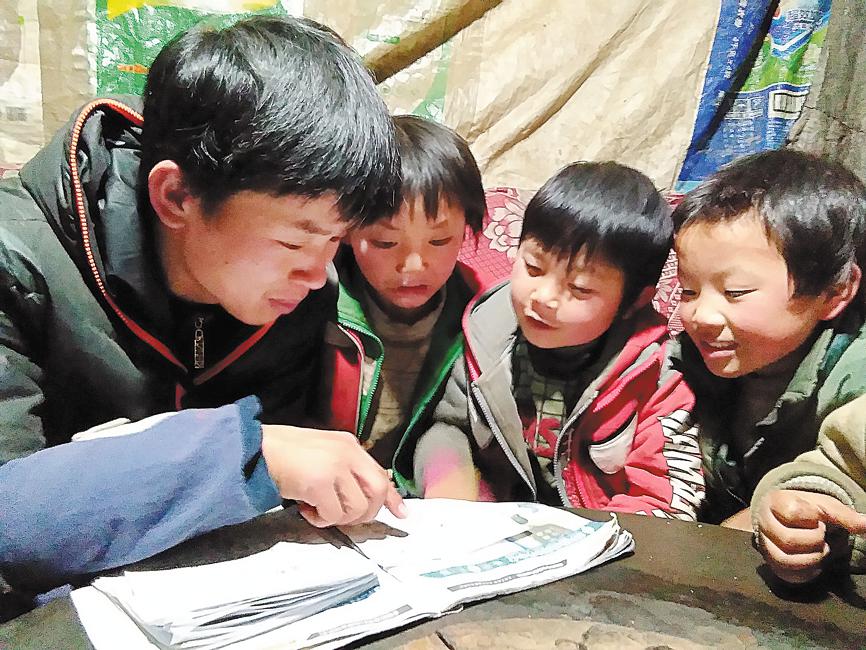Volunteer teachers provide a lesson in rural education
Program hopes to get more graduates working in isolated areas and give pupils a sense of pride, Wang Qian reports.
By Wang Qian | China Daily Global | Updated: 2021-09-22 10:39

Fostering local identity
When it comes to helping develop rural education, the first thing most people think of is to donate items, such as desks, books, clothing and even money.
However, Hou found this approach and mindset has its drawbacks and may even foster a mentality of expectation.
"It takes time and effort to change students' attitude toward donations and get them to learn to paddle their own canoe," the teacher says.
He quotes an old saying to illustrate his point: "Give a man a fish and you feed him for a day; teach him how to fish and you feed him for a lifetime."
It is not a rare case. Yang Feifan, a volunteer teacher of nine years at Changdong Primary School in Guangxi's Bama county, faced a similar situation in his second year at the school.
"That year, we received various donations from across the country. How to allocate them posed a question. I didn't want the students to get unearned things, so I came up with an idea to open a supermarket selling these donations. Students can buy or rent things through their labor, like cleaning classrooms, cooking or helping others," Yang says.
"I believe that good education should not be limited to textbooks, but expand to basic life skills and how to be a responsible person," the 34-year-old says.
According to market-research firm Zhiyan Consulting, as of 2019, there were about 89,000 rural primary schools serving nearly 25.6 million students across the country, about 24 percent of the national total.
Although the dropout rate in rural elementary schools has decreased dramatically, Hou suggests it is time to change people's mindset about village education.
In his opinion, the first thing to adjust is the textbooks, which should not adopt a one-size-fits-all approach. The textbooks for villages and cities are basically the same in China.
"Once a student asked me what an amusement park is after seeing it described in a textbook, which made me think about our education materials," Hou says, adding that if rural content is not covered in textbooks, these young people might not be able to relate to the content or feel proud of their villages.
"The skyscrapers, airports and fancy highways in the textbooks are far away from the students' life, which may plant a seed in student's mind that the city is good and advanced, while the village is not," Hou says.
In that case, there will be fewer people willing to contribute and build the countryside.
























